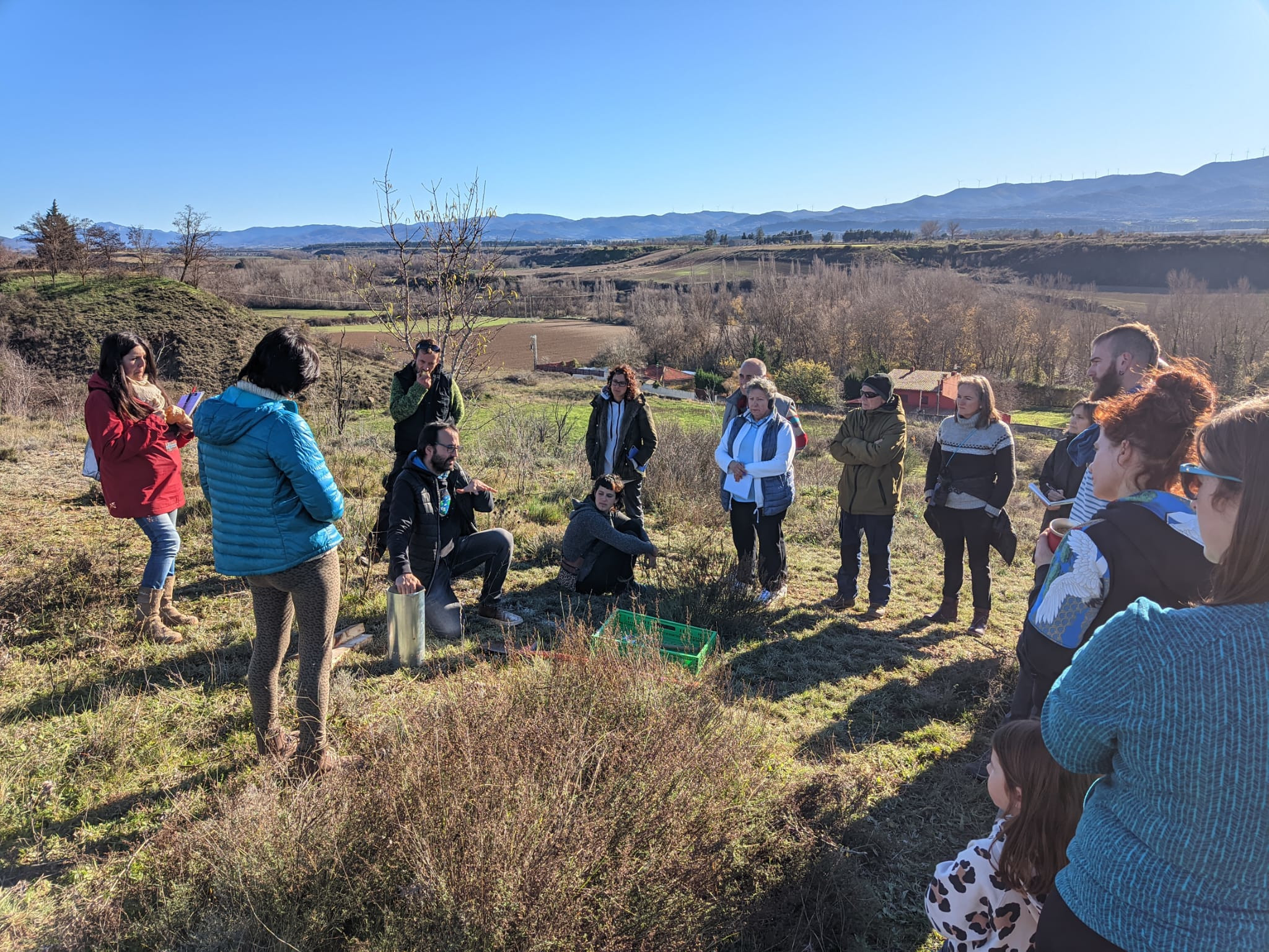
- As a child, Gillen and his brother Bittor Abrego Arlegi have lived in the farmhouse, in Tierra Estella, in the village of Igúzquiza. The family has been a farmer, but when the farmhouse and the plots remained in their hands, the two brothers decided to turn the project around: “We had the land and the farmhouse, we could start from scratch, and it was clear that we didn’t want anything with the animals. So what to do?” They intended to work on the road to food sovereignty, outside industry, and to give the working class a healthy food.

In 2017, the agricultural project was launched in a regenerative model. They produce wool, millet, chickpeas, lentils, quinoa and vegan products made with these ingredients.
"We have received the land for free but the gift is to return it to the people"
Abrego has claimed that regenerative agriculture is not a label, but a way of understanding life: “We want to eliminate or reduce dependence on fossil fuels and set carbon dioxide in the soil. In the end, we have collected this land for free, but it is not to exploit it or to pollute it. We have to take care of it and try to return that gift to the people, to the descendants.” Siblings work with this philosophy in organic production, small production, and the whole process, from land to the consumer's plate, on their own.
Wool, millet, wheat types, chickpeas, lentils...
The Abrego brothers produce in Igúzquiza a series of less common products in the Basque lands, which are mainly for direct sales. “Artobeltza hasn’t gone so well, it was a risky wager and we’ve seen it’s not the best for the soils here, it needs an ocean climate. Therefore, we will produce less, but chickpea, lentil and quinoa go very well.” In the case of local products, they use native varieties from the very beginning.
Transforming vegan foods
At Artotxiki they produce gluten-free products and with their ingredients they produce vegan products in the processing area that have been assembled in the old barn: “In the family we have people who have problems with gluten, and since I am now a vegetarian, we think about going that way.” In the stone mill they make flour and in the processing area snacks and hamburgers and vegan chistorras. “We intend to start making vegan cheeses. In fact, we attach great importance to the values of the food: we have fiber, we also have oil, we are getting proteins… we lack ferments”, he pointed out.
The two producers have been producing their products for a year and selling directly at the trade fairs, and for the time being they have been very satisfied with the answer. They are also sold in nearby stores and visited in the farmhouse to bring people closer to regenerative agriculture and the process of transformation.